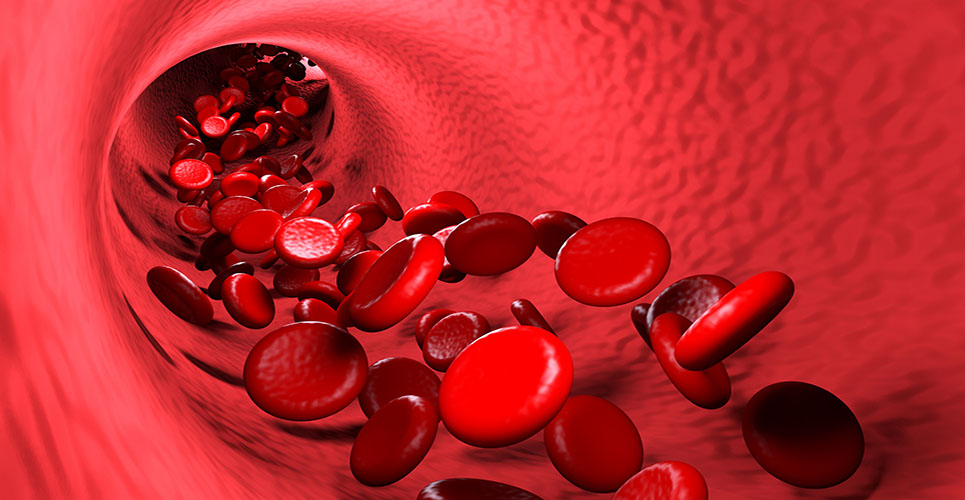Celgene International Sàrl (NASDAQ: CELG) has been notified that the European Commission (EC) has amended the marketing authorisation for REVLIMID®. This decision means that REVLIMID is now approved to treat patients with transfusion-dependent anaemia due to low or intermediate-1 risk myelodysplastic syndromes (MDS) associated with an isolated deletion 5q cytogenetic abnormality when other therapeutic options are insufficient or inadequate.(1)
Celgene International Sàrl (NASDAQ: CELG) has been notified that the European Commission (EC) has amended the marketing authorisation for REVLIMID®. This decision means that REVLIMID is now approved to treat patients with transfusion-dependent anaemia due to low or intermediate-1 risk myelodysplastic syndromes (MDS) associated with an isolated deletion 5q cytogenetic abnormality when other therapeutic options are insufficient or inadequate.(1)
MDS is a type of cancer where the production of blood cells and platelets by the bone marrow is disrupted, which can often lead to severe anaemia, infections and bleeding.(2) Approximately 50% of individuals with MDS will have some form of chromosome (cytogenetic) abnormality, and 30% of those are likely to have the specific del(5q) abnormality.(3) In general, MDS del(5q) is associated with a poor prognosis – especially when other cytogenetic abnormalities are present – including the risk of progressing to acute myeloid leukaemia (AML), which is often fatal.(2)
“Transfusion dependant MDS patients, with an isolated 5q deletion, have had few effective therapy options historically, but the European Commission decision now brings new hope for these people, with an effective and targeted treatment option,” said Dr. Aristotles Giagounidis, of the Marien Hospital in Dusseldorf, Germany. “The standard of care for MDS has historically been red blood cell transfusions, which can help control the disease but pose a tremendous burden to patients – particularly the elderly, who make up the majority of MDS patients – as well as to health care providers and health systems,”
Adds Alan Colowick, President of Celgene EMEA: “Today’s announcement is the result of many years of development and ongoing collaboration with the European regulatory authorities to bring an important and targeted treatment option to people with MDS throughout Europe who have an isolated del(5q) cytogenetic abnormality. Celgene has pursued an indication for this rare disease for nearly seven years, and after much perseverance, we are proud to now be able to start the important work of partnering with our many stakeholders to ensure patients have access to REVLIMID for MDS del(5q).”
The European Commission’s decision on REVLIMID was based on the positive benefit-to-risk ratio in the indicated population, demonstrated by the results of MDS-004 and MDS-003.(4–5) MDS-004 was a phase III, multi-centre, randomised, double-blind, placebo-controlled clinical study.(4)
The results demonstrated that a significantly larger proportion of patients with myelodysplastic syndromes achieved the primary endpoint of transfusion independence (>182 days) on lenalidomide 10mg compared with placebo (55.1% vs. 6.0%).(4) Among the 47 patients with an isolated del(5q) cytogenetic abnormality and treated with lenalidomide 10mg, 27 patients (57.4%) achieved red blood cell transfusion independence.(4)
The decision follows the positive opinion issued by the Committee for Medicinal Products for Human Use (CHMP) in April 2013.(6)
References
- Revlimid Summary of Product Characteristics
- Kurzrock R. Semin Hematol 2002; 39(Suppl 2): 18-25
- Giagounidis A. 2006; haematologica reports 2006; 2(issue 14)
- List A, et al. N Engl J Med 2006; 355(14): 1456-65 17
- Fenaux P, et al. Blood 2011; 118(14): 3765-76
- European Medicines Agency, Committee for Medicinal Products for Human Use (CHMP). Summary of opinion – Revlimid. http://www.ema.europa.eu/ema/index.jsp?curl=pages/medicines/human/medicines/000717/ smops/Positive/human_smop_000439.jsp&mid =WC0b01ac058001d127 [last accessed June 2013]

